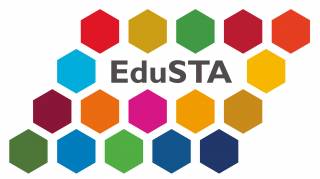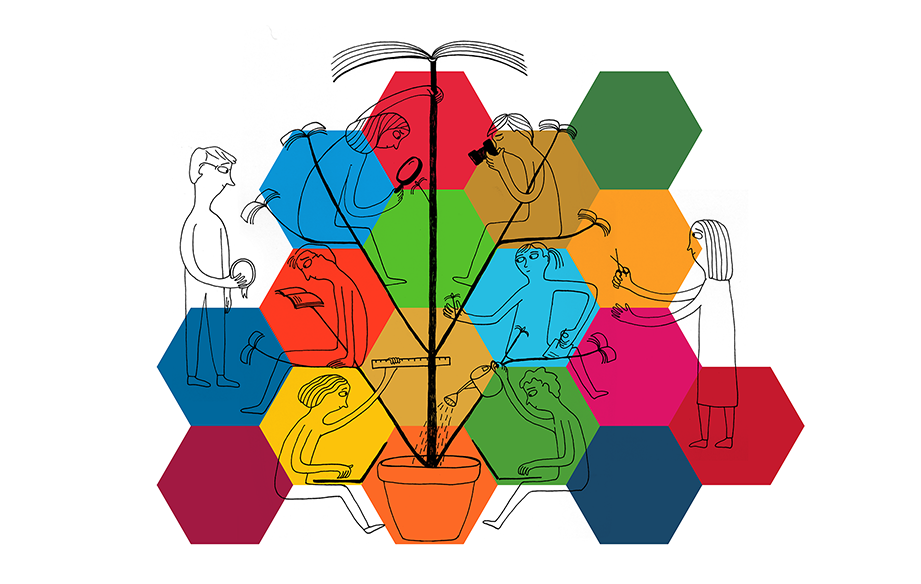The project leader Eveliina Asikainen opened the webinar with introduction of Competence-based Digital Badge-Driven Process. She pointed out that EduSTA consortium sees “Digital Open Badges as a vehicle for recognition and documentation of competences allowing for recognition of prior learning.”
Her speech was followed by Marta Guál Oliva, an expert in education from the University of Girona, who summarized a process of teaching integrating two micro-badges “Conscious Change Agent” and “Systems Thinking Promoter” into courses Environmental and Scientific School Experiences and Geography in a Changing World, where she mentioned role playing and cooperative learning as appropriate methods for training to achieve open badges on ESD competences. She closed her input by a message of one of her students:
“Now I can’t see things without service-learning. If I want to do something now, I’ll always think about how everyone can contribute”
Next speaker, Jiri Votava, expert in pedagogy at the Czech University of Life Sciences Prague, presented lesson learnt from integrating milestone badge Reflexive Praxis into existing curricula of the course School Pedagogy, where he explained high impact of transformative learning on student ability to ask questions and to reflect his/her own practice. He finished his speech by quote:
“The role of the educator is to help the learner focus on and examine the assumptions that underlie their beliefs, feelings and actions.“ (Mezirow)
Then, Helen Hellgren from the University of Gothenburg introduced a pilot course Development Work and Action Research for Vocational Teachers, where she emphasised the importance of the students’ assessment to show understanding of the link between SDGs and ESD in their specific educational context. Her final sentence encouraged webinar participants to think that “the word overconsumption itself can be challenging. Who has the right to say what is too much?”
The second part of webinar focused on the continuous development of teachers, where Elles Kazemier, the EduSTA project leader at the HANZE University of Applied Sciences, spoke about new role for teachers – working on societal (sustainability) challenges through interdisciplinary learning communities, embedded in region of Groningen. In her case study of implementing ESD atelier at Hanze, she introduced a variety of didactic tools. We are delighted to share their methods in the next EduSTA blog!
The webinar was closed by Hanna Teräs, senior lecturer from the Tampere University of Applied Sciences, she mentioned a remarkable work by TAMK team regarding assessing and issuing open badges, she demonstrated work in learning platform Open Badge Factory and process of assessment, where 175 (!) badges were awarded to teachers from TREDU, TAMK staff and students (future VET teachers). She sees this platform as a practical framework that forces to reflect and translate abstract ESD knowledge into practical action in teaching. TAMK team achieved enormous impact in Finland!
Are you curious more about EduSTA open badges and competence-based learning? You have chance to watch recordings from the webinar in Tampere Universities’ Panopto account.
Author: Barbora Jordánová
Illustration by Ester Tajrychová


